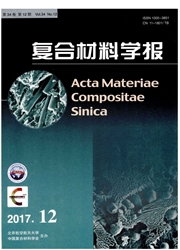

 中文摘要:
中文摘要:
考察了物料配比和煅烧工艺对以凹凸棒石黏土、 锯末(造孔剂)和水玻璃(粘结剂)为原料制备的凹凸棒石基多孔陶粒(PC)性能的影响。利用所制备多孔陶粒的抗压强度作为衡量陶粒质量的指标, 通过单因素、 正交实验来优化陶粒的物料配比和煅烧工艺, 并通过XRD、 SEM表征多孔陶粒特性。结果表明: 物料的最佳质量比为凹凸棒石黏土:锯末:水玻璃=10:2:1; 在最佳煅烧条件下(700℃, 煅烧3 h)可以制备出满足国家标准的水处理用陶粒; 所制备陶粒内部存在大量分布均匀、 三维连通的气孔, 适合微生物的附着。
 英文摘要:
英文摘要:
Palygorskite-based porous ceramsite (PC) was prepared by calcination with palygorskite, sawdust and sodium silicate. Effect of the mass ratio of reaction materials and clacination technique on the properties of ceramsite was investigated. Furthermore, in various tests for the ceramsite, compressive strength was the principal factor to determine the mechanical properties of ceramsite. To choose the most suitable product, porosity, calcination temperature and time were introduced as factors in orthogonal experiment design to determine the preparation of PC. XRD and SEM were used for the characterization of porous ceramic characteristics. The results show that a promising combination of palygorskite clay, sawdust, and sodium silicate would ensure PC conforming to the state industrial standards of water treatment, when the mass ratio is 10:2:1, the calcinations temperature is 700℃ and the calcinations time is 3 h. The uniform and interconnected pores in PC are suitable for the microbial growth.
 同期刊论文项目
同期刊论文项目
 同项目期刊论文
同项目期刊论文
 The difference of thermal stability between Fe-substituted palygorskite and Al-rich palygorskite. Jo
The difference of thermal stability between Fe-substituted palygorskite and Al-rich palygorskite. Jo 期刊信息
期刊信息
